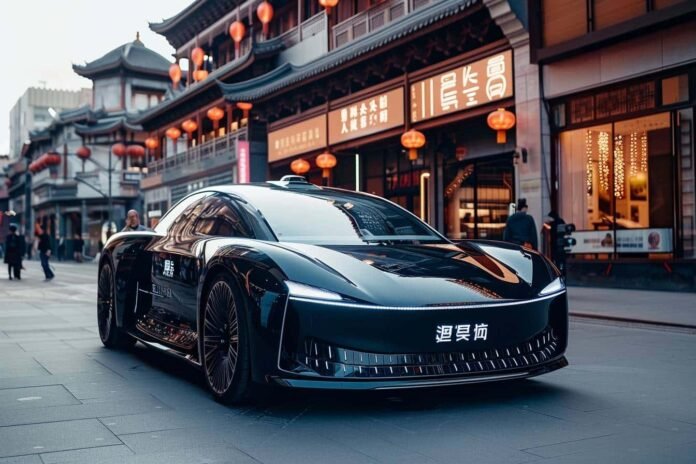This decision could have significant consequences for the US auto industry.
The bill, expected to be submitted to Congress in August, could ban the use of Chinese software in American self-driving cars. The US government justifies this initiative with national security concerns.
A portable personal assistant for the visually impaired
Joe Biden widens the gap between the US and China
According to Reuters, the US Commerce Department wants to ban Chinese software in autonomous vehicles. The Biden administration is particularly targeting cars with Level 3 or higher autonomous driving. This law could also prohibit testing of Chinese autonomous vehicles on US soil.
If the law is passed, manufacturers and suppliers must guarantee the absence of Chinese software in their vehicles. The regulation is expected to be submitted to Congress in August. A spokesman for the Department of Commerce said the government is “concerned about risks to national security.”
A connected polo shirt to track your physical activity
Fear of national security
On July 31, 2024, the White House hosted a meeting to address national security risks in connected vehicles. Representatives from many countries, including Australia, Canada, the European Union and Japan, were present.
US lawmakers are particularly concerned about Chinese companies’ collection and processing of sensitive data. The government has launched an investigation into ten Chinese companies operating in the US, including Baidu, Nio and Xpeng.
The Keys and Boceto have the keys of tomorrow
| 🔍 Appearance | Details |
|---|---|
| 🚗 Targeted technologies | Autonomous driving level 3 and above |
| ⏳ Timing | Submission to Congress in August |
| 🌐 Affected countries | USA, China, international partners |
The US fears that connected vehicles could be used to spy on or take control of vehicles. Commerce Minister Gina Raimondo emphasized that the risks to national security are very significant and justify drastic measures.
International reactions and economic consequences
The Chinese Embassy in Washington responded by calling for fair competition. The spokesperson said that only fair competition can promote technological progress. China urges the US to respect international trade rules.
In response, China said it would defend its rights and interests. This situation could exacerbate trade tensions between the two powers. US companies may also be affected by these restrictions.
- Autonomous technologies
- National security
- International competition
It is crucial to consider how these new restrictions will affect innovation and competitiveness in the automotive industry. Will American manufacturers be able to adapt to this new reality or will we see a technological regression?
